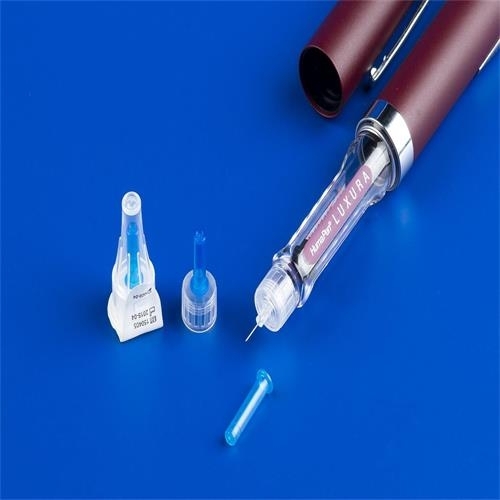Let’s talk insulin.
Mention the “I word” to a low carbohydrate dieter, or maybe a clean eater, and you will virtually discover their whereabouts turn white since the blood drains from other face in abject horror.
For many years, insulin will be the big crook inside the nutrition world.
They make reference to insulin as “the storage hormone” and believe that anywhere of insulin in your body will immediately lead you to lay down new fat cells, gain weight, and lose any amount of leanness and definition.
Fortunately, that’s not quite true.
In fact, while simplifying things with regards to nutrition and training are frequently beneficial, it is a gross over-simplification of the role of insulin in the human body, and the truth is entirely different.
Not even close to being the dietary devil, insulin is basically absolutely nothing to be afraid of at all.
What Insulin Does
The first part of the insulin worrier’s claim (that insulin can be a storage hormone) holds true – one of insulin’s main roles would be to shuttle carbohydrate that you simply eat around the body, and deposit it where it’s needed.
That doesn’t mean that all the carbs you consume are turned into fat though.
You store glycogen (carbohydrate) in your liver, your muscles cells and your fat cells, and it will only get shoved into those pesky adipose sites (fat tissue) in the event the muscles and liver are full.
Additionally, unless you have a calorie surplus, you simply cannot store body fat.
See it by doing this –
Insulin is similar to the staff inside a warehouse.
Calories include the boxes and crates.
You could fill that warehouse fit to burst with workers (insulin) but if there isn’t any boxes (calories) to stack, those shelves won’t get filled.
So if you feel burning 3,000 calories daily, and eating 2,500 calories (or even 2,999) one’s body can’t store fat. It doesn’t matter if all those calories result from carbs or sugar, you simply will not store them, as the body needs them for fuel.
Granted, this would not be earth’s healthiest diet, speculate far as science is involved, it comes to calories in versus calories out, NOT insulin.
It is not just Carbs
People fret over carbs obtaining the biggest impact on insulin levels, and the way carbohydrate (particularly with the simple/ high-sugar/ high-GI variety) spikes insulin levels, but a lot of other foods raise insulin too.
Whey protein, for instance, is highly insulogenic, which enable it to spark a spike, especially when consumed post workout.

Dairy foods too will have a relatively large effect as a result of natural sugars they contain, as well as fats can raise insulin levels.
Additionally, the insulin effect is drastically lowered to eat a combined meal – i.e. the one that contains carbs plus protein and/ or fat.
This slows the digestion along with the absorption in the carbs, ultimately causing a much lower insulin response. Add fibre in to the mix too, and the raise in insulin is minimal, so even though i was focused on it before, the solution is simple – eat balanced, nutrient-dense meals, and also you will not need to worry.
Insulin Builds Muscle
Returning to the idea of insulin as a storage hormone, as well as the notion that it delivers “stuff” to cells:
Fancy having a guess at what else it delivers, beside carbohydrate?
It delivers nutrients for your muscle cells.
Therefore, if you are forever trying to keep levels of insulin low for concern with extra weight, it’s highly unlikely you’ll get buff optimally. It’s for this reason that I’d never put clients trying to get buff and make lean gains on the low-carb diet.
No Insulin Can certainly still Equal Fat Storage
Unlike those low-carb diet practitioners once more, you are able to store fat when insulin levels are low.
Fat when consumed in the caloric surplus is really changed to unwanted fat tissue far more readily than carbohydrates are, showing that after again, fat gain or weight-loss is dependant on calories in versus calories out, not levels of insulin.
Why low-Carb (and Low-Insulin) Diets “Work”
Many folk points towards scientific and anecdotal proof low-carb diets being employed as reasoning to keep insulin levels low.
I will not argue – a low-carb diet, where insulin release is kept down are able to work, however has hardly any related to the hormone itself.
If you cut carbs, you mostly cut calories, putting you in to a deficit.
Additionally, the average joe will eat more protein plus more vegetables when going low-carb, in order that they feel far fuller and consume less. Plus, protein and fibre both have a high thermic effect, meaning they burn more calories through the digestion process.
Important thing: Insulin – Not too Bad In fact
There’s no need to worry about insulin if you –
Train hard and regularly
Have a balanced macronutrient split (i.e. ample protein and fat, and carbs to match activity levels and preference.)
Are relatively lean.
Eat mostly nutrient-dense foods.
Don’t have any difficulty with diabetes.
You may still store fat with low levels of insulin, and you’ll burn up fat and create muscle when insulin is present.
Investigating insulin in isolation as either “good” or “bad” is actually a prime instance of missing the forest for your tress, so calm down, and let insulin do its thing when you pinpoint the main issue.
More info about ozempic online UK see this useful site.


